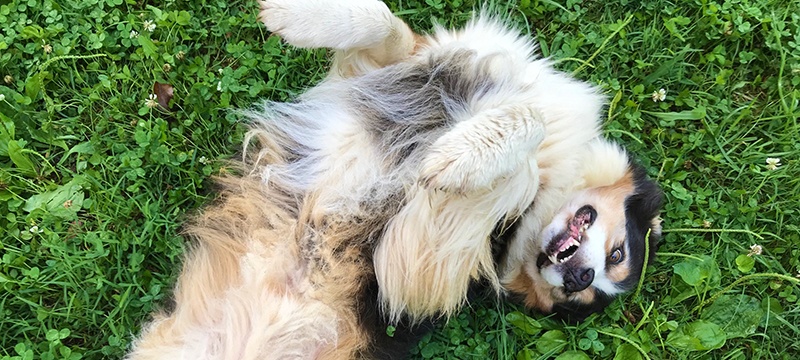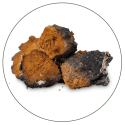
In the Lab: BioStar’s next generation of probiotic formulas
We may not have reinvented the wheel on probiotics, but BioStar has put in the time and research to develop the next generation of probiotic supplements for horses and dogs. We have spent the last five years studying and assessing important components and co-factors for healthy GI tracts. It all comes back to dirt, and the soil-based organisms found there.
Did You Say Dirt?
One thing even a casual observer will note is that many mammals, including humans, love to play and roll in the dirt. The nose and lips of horses are in contact with dirt as they graze. Wild mammals across the globe, whether they eat plants or other animals, end up inhaling and eating soil bacteria and fungi.
The microbiome of mammals is huge and complex. This contact with soil has important health benefits we are only just beginning to understand.
What’s so Great About Dirt?
Soil is a fascinating ecosystem. Healthy soil is made up of a matrix of microorganisms, bacteria, fungi, minerals, fatty acids, humic acids, fulvic acids, and micro-nutrients. Worms create super- highways in healthy soil for bacteria and fungi to assist the plants’ uptake of nutrients.
It is a living, dynamic system. Soil is the foundation for the entire terrestrial plant world and all living things.
Get Dirty
Researchers in Finland have found that changes in the biodiversity of the microbiome (skin and GI tract) has an affect on the immune system. Disruptions can contribute to increases in allergies.
Their research showed that children who lived in rural areas had more diverse bacteria on their skin than children living in more urban areas.
A later study showed that mice who were housed in bedding mixed with potting soil did not develop lung inflammation in response to an asthma-triggering allergen. The mice who lived on clean bedding were more susceptible to lung inflammation (Akst, 2020).
What Does Soil have to do with the GI tract of Horses and Dogs?
The fact is, our horses and dogs are spending less time with their noses in grass and dirt. When horses are out grazing, they are in contact with soil-based microorganisms, fungi and bacteria. When dogs are digging in the dirt or enjoying a bone in the grass, they are in contact with the soil microbiome.
The soil microbiome has played a symbiotic role with mammals for thousands of years.
When ingested, these beneficial bacteria and fungi can protect against pathogens and support microbial diversity in the GI tract. Fulvic acid replenishes nutrients and enzymes. Studies have shown fulvic acid plays an important role in intestinal tight junctions and healing gastric ulcers.
The biodiverse nature of soil-based microorganisms supports the immune system.
Soil is actually the most diverse habitat on earth.”
Sophie Zechmeister-Boltenstern, Head of the Institute of Soil Research
University of Natural Resources and Life Sciences, Vienna (Akst, 2020).
Decrease In Biodiversity of Soil
An over-reliance on chemical fertilizers, weed killers, and pesticide sprays has contributed to a decrease in biodiversity of soil. Remember, soil is a living system and it is affected by what we do.
The lack of biodiversity in present-day soils affects our horses, dogs, and ourselves. The diversity of the human gut microbiome is decreasing because biodiversity in the environment is decreasing.
Soil Ecosystems are Affected by Numerous Factors
- Pesticides, herbicides, insecticides and fungicides are harmful to soil communities because they reduce the diversity of soil-based microorganisms. Some pesticides interfere with enzymes produced by soil microbes. This alters soil fertility and nutrient cycling.
- Soils that are disturbed regularly by intensive tillage have reduced numbers of fungi.
- Soils that become flooded have lower numbers of fungi.
- Compacted soils degrade the microenvironment of soils that the bacteria, fungi, and earthworms need.
- Chemical fertilizers reduce the microbial community and the bacterial diversity.
- Soils with depleted humus and therefore reduced humic acids, have less trace elements (such as zinc) available to plants and reduced calcium and phosphorus for plant uptake.
It is important to note that numerous studies have shown that organic matter fertilizer (manure) increases microbial communities and diversity. It also enhances enzyme activity and the organic matter feeds soil microbes (Luan H, Gao W, Huang S, Tang J, Li M, et al., 2020).
High-Diversity Soil
High diversity soil contains humus, which is the decomposition of leaves and other plant material over long periods of time. Humic and fulvic acids are found in humus and in ancient decomposed plant material such as shilajit, lignite, and reed sedge peat, which date back to the Triassic, Jurassic, and Pleistocene periods.
The High-Diversity Soil Matrix
Soil-based microorganisms, bacteria, fungi and fulvic acids increase soil nutrients and water transport and utilization.
Soil-based microorganisms decompose organic matter released by plant roots. They also provide nitrogen and can keep pathogenic, unfriendly bacteria in check.
Bacteria increase nutrient availability to plants. Certain bacteria dissolve phosphorus, making it more available for plants to use.
Fungi regulate the balance of carbon and nutrients in the soil. Certain fungi possess the ability to act as an effective bio-sorbent of toxic metals such as cadmium, mercury, and lead. These soil fungi are also biological controllers that can regulate diseases and pests. Some scientists classify these fungi as “ecosystem regulators.”
Humic acids stimulate microbial activity in soil and increase cell wall permeability of plants, so that nutrients are easily absorbed. They can also chelate toxic minerals, preventing harmful material from entering the plant.
Fulvic acids bind to soil nutrients and transfer those nutrients to plants. Some soil researchers describe fulvic acids as the “railcars” that carry vital nutrients to the plant.
How Healthy is the Soil your Animals are Exposed to?
Many people don’t like dandelions, so they spray pesticides to get rid of them. They want a beautiful lawn, so they add chemical fertilizers.
Horse pastures are often chemically treated with herbicides and fertilizers. Manure spreaders have fallen out of use, thus robbing the pasture soil of organic matter. In many places, manure is required by ordinance to be removed.
Many of our horses and dogs presently are not getting the health benefits of healthy, biodiverse soil.

Consider of the diverse populations that comprise the microbiome of the horse’s gut as a mirror for the diversity in Nature. Is there only one kind of tree? Only one kind of grass? One kind of wildflower? Diversity is a fundamental component of the natural world. When we fear diversity, we become disconnected, and all the components of the ecosystem are then at risk from the imbalance.
The Next Generation of Probiotic Supplements
BioStar has combined strains of several beneficial soil-based bacteria plus fulvic and humic acids with the traditional Chinese mushroom Chaga into a liquid supplement.
This advanced probiotic supplement represents a microcosm of healthy, biodiverse soil.
This liquid supplement is made with purified water because the biota, fungi and humic acids play an important role in water transportation in the soil.
Health Benefits
- Provides active soil-based bacteria that can increase the diversity of beneficial bacteria in the GI tract.
- Supports the immune system by increasing the microbiome diversity.
- Soil-based bacteria are hardy and can survive passage through the stomach unlike other probiotic strains. Needs no refrigeration.
- Supports healthy digestion.
- Provides the adaptogenic mushroom, Chaga, for support of homeostasis. Supports a healthy immune system and liver function.
- Provides antioxidant support.
- Fulvic and humic acids aid in nutrient delivery.
- Supports an optimal environment for beneficial bacteria to flourish in the gut.
- Mitochondria support from fulvic and humic acids. The mitochondria are required for cellular respiration, ATP production, and metabolism.
Which Horses or Dogs would Benefit?
- Horses who have limited access to pasture and grazing, and urban dogs.
- Horses or dogs whose pasture soil or backyards have been exposed to chemical fertilizers, herbicides, and pesticides.
- Horses or dogs with allergies or other immunocompromised issues.
- Horses whose pastures have recently flooded.
- Horses or dogs on antibiotic therapy.
- Horses or dogs with IBS or diarrhea.
- Dogs with food sensitivities
NOW AVAILABLE!
For Dogs: Sym-Biota K9
For Horses: Sym-Biota EQ & Tri-Gard EQ (a syringe that includes Sym-Biota ingredients).
 About the Author: With over 30 years experience in the equine and human supplement industry, Tigger Montague knows nutrition from the synthetic side as well as the whole food side. She started BioStar US in 2006 with formulas she created in her kitchen. Before she started the company, she was an avid rider and competitor with eventing and show jumping, until she got hooked on dressage in the late 1980’s. She has competed on horses she’s owned and trained all the way from training level to Grand Prix.
About the Author: With over 30 years experience in the equine and human supplement industry, Tigger Montague knows nutrition from the synthetic side as well as the whole food side. She started BioStar US in 2006 with formulas she created in her kitchen. Before she started the company, she was an avid rider and competitor with eventing and show jumping, until she got hooked on dressage in the late 1980’s. She has competed on horses she’s owned and trained all the way from training level to Grand Prix.
References:
Akst, J. (2020) The Influence of Soil on Immune Health. The Scientist. Jan 2020.
Luan H, Gao W, Huang S, Tang J, Li M, et al. (2020) Substitution of manure for chemical fertilizer affects soil microbial community diversity, structure and function in greenhouse vegetable production systems. PLOS ONE 15(2): e0214041.











